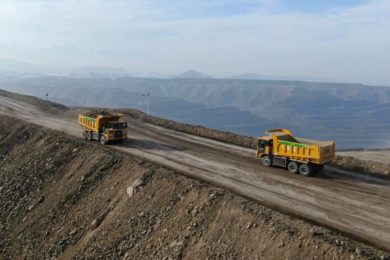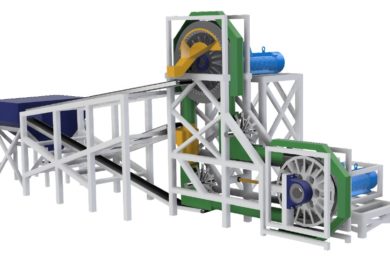Australian Federal Treasurer Wayne Swan today accepted a recommendation from the National Competition Council (NCC) to declare the Robe River, Hamersley and Goldsworthy rail lines open for third party access under Part IIIA of the Trade Practices Act.
Fortescue Metals Group subsidiary The Pilbara Infrastructure (TPI) lodged an application to the NCC to declare the Hamersley rail line in November 2007 and the Robe River and Goldsworthy lines in January 2008. “The economic, social and environmental arguments for opening the rail lines to third party access are compelling. We are pleased Treasurer Wayne Swan has accepted the NCC’s recommendation to declare the rail lines,” Fortescue Executive Director Operations Graeme Rowley said. “This is a great decision for Fortescue, for junior miners and for Australia’s export revenue and the economic and social dividends it provides. We are now looking forward to negotiating commercial access terms with Rio Tinto and BHP Billiton rather than wasting more money on costly legal appeals.”
One of the criteria to gain third party access to infrastructure under Part IIIA of the Trade Practices Act is that it must have economic significance. “The ability to transport ore efficiently will contribute to Australia’s export revenue and the benefits that the community and society derive from that revenue, so will provide real public benefits,” Rowley said. “BHP Billiton and Rio Tinto continue to enjoy significant taxpayer subsidies as part of their undertaking to the State Government to allow access to the rail line. The time has come now for us all to work together. Fortescue has proved with its own rail line that you can successfully build and operate an open access rail line to enable the utilisation of Australia’s rich minerals and to prevent the stranding of deposits and the resultant economic loss.”
The North West Iron Ore Alliance has applauded the announcement that the services provided by BHP Billiton’s Goldsworthy railway line, and Rio Tinto’s Hamersley and Robe railway lines, would be declared under Part IIIA of the Trade Practices Act 1974 for a period of 20 years.
The Alliance said today that the Treasurer’s final declaration provides third party iron ore producers – including the members of the North West Iron Ore Alliance – with the right to recourse to binding arbitration before the Australian Competition and Consumer Commission (ACCC), if they are unable to agree on access terms and conditions with the infrastructure owners.
BHP Billiton expressed its disappointment in the decision announced today by the Federal Treasurer to ‘declare’ BHP Billiton’s West Australian Goldsworthy rail line. Ian Ashby, President of Iron Ore, said: “Providing third party access to the company’s rail operations would compromise the efficiency of BHP Billiton’s integrated mine, port and rail operations. In the current fiscal year alone, these operations are expected to deliver more than 137 Mt of iron ore to customers all over the world and are already running at full capacity.
“Our view is unchanged. The efficient delivery of iron ore to our customers should not be compromised through allowing other companies to put their rail cars on our tracks, creating potential delays or disruption to our operations.”
The Minerals Council of Australia said it was disappointed with the Treasurer’s decision. “The decision to declare the Robe, Goldsworthy and Hamersley Railways under Part IIIA of the Trade Practices Act 1974 means that the private owners and operators of these railways will be required by law to negotiate terms under which they make their facilities available to competitors. This is at odds with the fundamental premise in commerce of the freedom to choose with whom to enter into commercial enterprise.
“The decision stands to significantly disrupt the economic operations of, and investment in, these highly sophisticated, efficient, vertically-integrated production and supply chains.
“The MCA will seek amendments to the Trade Practices Act to correct anomalies in the interpretation and application of Part IIIA [of the Act] to more carefully and more clearly limit the circumstances in which one business is required by law to make its facilities available to another – in this case, the mandating of third party access to privately owned and operated infrastructure within a closely integrated production process.”








